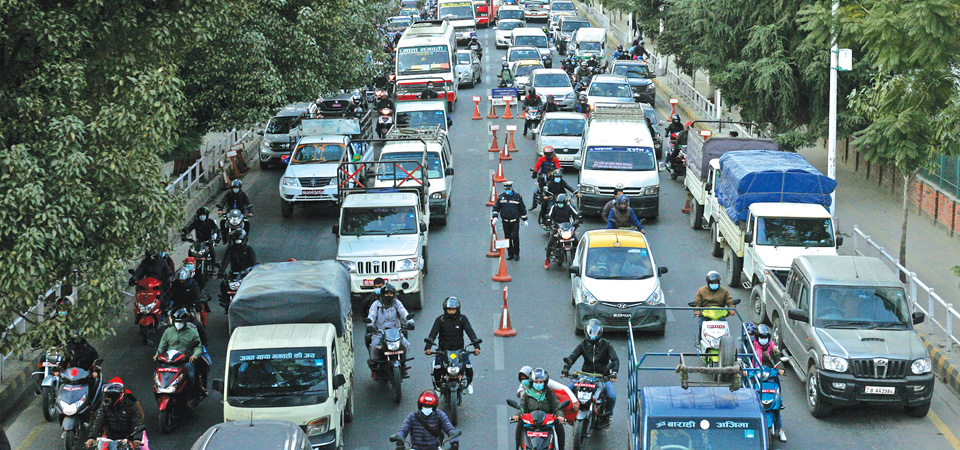Valley denizens happy about relaxed prohibitory order

By Aashish Mishra
Kathmandu, July 6: The District Administration Offices of the three districts of Kathmandu Valley have further relaxed the prohibitory order, lifting the restrictions on the opening of non-essential businesses, removing the odd-even rule on vehicles and allowing public transport to operate with safety measures in place. This has made denizens of the valley happy.
Indra Kumar Adhikari said that the administration took the right decision at the right time. “The number of daily COVID-19 cases has been declining steadily for the past few weeks and it is now time to let people resume their lives,” Adhikari, owner of a furniture shop in Kumaripati, Lalitpur, told The Rising Nepal. Restaurateur Dalbir Rai also welcomed the loosening of the prohibitions, saying it would enable working people like him to start making a living again. He also requested the authorities not to impose another lockdown or lockdown-like measures now. “Lockdowns, in whatever form, destroy livelihoods and hurt the economy. Therefore, it should only be used as an absolute last resort,” Rai said, adding, “Instead of lockdowns, the government should focus on raising public awareness and strict enforcement of the health protocol.”
The Government of Nepal first imposed a lockdown on March 24, 2020, following the discovery of a second COVID-19 patient in the country. This lockdown lasted for more than four months and led to 3.7 million Nepalis facing employment issues, according to the International Labour Organisation (ILO).
However, the country had started to recover and life had started to get back on track when the latest prohibitory orders were announced by the District Administration Offices in Kathmandu on April 29 this year to control the second wave of the COVID-19 outbreak.
As of the third week of May, 53 per cent households had lost their jobs and 40 per cent of them had lost their additional source of income, like remittances, as well, as revealed by a rapid survey conducted by Sharecast Initiative Nepal with support from the United Nations Children's Fund (UNICEF).
The survey, which covered 3,000 families, showed that daily-wage labourers were one of the hardest-hit groups; daily-wage labourers like porter Ganesh Achhami. Before the April shutdown, Acchami used to earn a few thousand rupees every day carrying loads around the Ratnapark and Ason areas.
This was his only source of income and the sole means by which he supported his wife and two sons. But the prohibitory order prevented him from working and caused great financial difficulties to his family. Now, with the order loosened, Achhami hopes he will be able to earn some money again.
“I understand that the Chief District Officers were forced to impose restrictions on public activity because of the health risks, but they must also understand the pain it causes to poor people like us. I am very happy that they have relaxed some of the provisions of the prohibitory order and I hope we will be allowed to work and earn for our families,” Achhami said.
Recent News

Do not make expressions casting dout on election: EC
14 Apr, 2022
CM Bhatta says may New Year 2079 BS inspire positive thinking
14 Apr, 2022
Three new cases, 44 recoveries in 24 hours
14 Apr, 2022
689 climbers of 84 teams so far acquire permits for climbing various peaks this spring season
14 Apr, 2022
How the rising cost of living crisis is impacting Nepal
14 Apr, 2022
US military confirms an interstellar meteor collided with Earth
14 Apr, 2022
Valneva Covid vaccine approved for use in UK
14 Apr, 2022
Chair Prachanda highlights need of unity among Maoist, Communist forces
14 Apr, 2022
Ranbir Kapoor and Alia Bhatt: Bollywood toasts star couple on wedding
14 Apr, 2022
President Bhandari confers decorations (Photo Feature)
14 Apr, 2022









